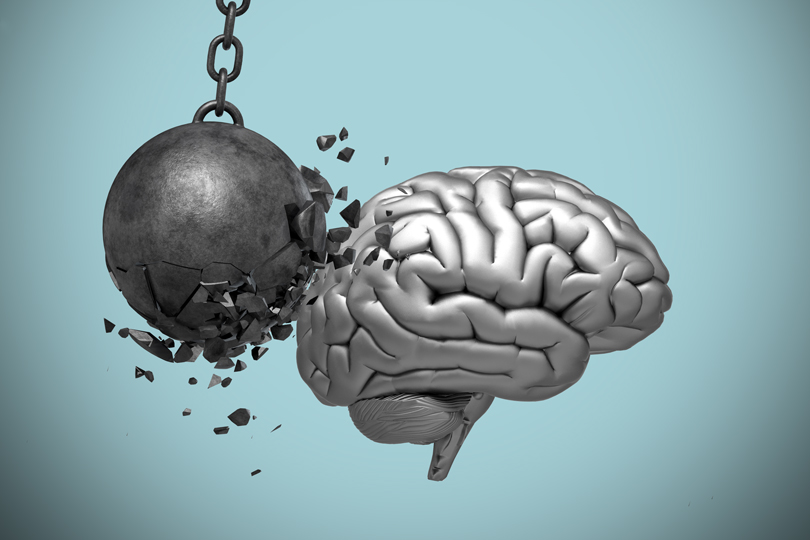Stress:
Stress is a physiological and psychological response to demands and pressure that can occur in various aspects of life. It can have negative effects on physical and mental health.
Stress can be caused by various factors, such as work-related issues, personal relationships, financial problems, and major life changes. Everyone experiences stress differently, and it can manifest in symptoms like headaches, fatigue, irritability, and difficulty sleeping. Managing stress is essential for overall well-being, and strategies such as exercise, relaxation techniques, healthy eating, and seeking support from loved ones can help in coping with stress effectively.
Understanding the causes and symptoms of stress is the first step towards managing and reducing its impact on our lives.
:max_bytes(150000):strip_icc()/chronic-stress-31451049-Final-825f92cacc0e4dfb8ced6022811baf99.png)
Credit: www.verywellmind.com
Understanding Stress
Stress is a normal psychological and physical response to the demands of daily life. It is the body's way of reacting to a challenge or threat. The causes of stress can be external, such as work pressure, financial problems, or relationship issues. Internal factors like unrealistic expectations, negative thinking, and chronic worrying can also contribute to stress. Additionally, major life changes like divorce, illness, or the death of a loved one can trigger stress responses.
Stress can manifest in various ways and affect individuals differently. Common effects of stress can include physical symptoms like headaches, stomachaches, and fatigue. It can also impact mental well-being, leading to feelings of anxiety, irritability, or difficulty concentrating. In some cases, chronic stress can contribute to more severe conditions like depression or cardiovascular problems.
| Causes of Stress | Effects of Stress |
|---|---|
| Work pressure | Physical symptoms (headaches, fatigue) |
| Financial problems | Mental health issues (anxiety, irritability) |
| Relationship issues | Difficulty concentrating |
| Unrealistic expectations | Increased risk of depression or cardiovascular problems |
| Major life changes |

Credit: news.uga.edu
Managing Stress
Identifying stress triggers can greatly help in managing stress effectively. It is important to recognize the situations, people, or activities that cause stress in your life. Once you have identified the triggers, you can develop effective stress management techniques. These techniques may include deep breathing exercises, meditation, regular physical exercise, and getting enough sleep.
Implementing stress management techniques has numerous benefits. It can reduce the negative impact of stress on your body and mind. Stress management can improve your overall well-being, boost your immune system, increase your energy levels, and enhance your ability to focus and make decisions. Additionally, it can improve your relationships, increase your productivity, and help you maintain a positive outlook on life.
Reducing Stress In Daily Life
Reducing stress in daily life can greatly improve overall well-being and quality of life. One of the key ways to achieve this is by making healthy lifestyle choices. Taking care of one's physical health by exercising regularly, eating a balanced diet, and getting enough restful sleep can help to reduce stress levels. Another important aspect is maintaining a work-life balance. Setting boundaries between work and personal life, prioritizing tasks, and delegating responsibilities can prevent overwhelm and burnout. Engaging in relaxation techniques such as deep breathing exercises, meditation, or practicing mindfulness can also be helpful in managing stress. It's important to find what works best for each individual and incorporate these strategies into daily routines. By making these positive changes, it becomes possible to effectively manage stress and lead a happier, healthier life.

Credit: www.healthline.com
Frequently Asked Questions Of Stress:
How Does Stress Affect The Body?
Stress triggers the release of stress hormones, like cortisol, that can lead to physical changes in the body. It can impact your immune system, increase the risk of heart disease, and cause digestive problems. Managing stress through relaxation techniques and self-care can help mitigate these effects.
Can Stress Cause Mental Health Problems?
Yes, chronic stress can contribute to the development of mental health issues such as anxiety and depression. Prolonged stress can affect brain chemistry and increase the risk of mood disorders. It is important to seek professional help and practice stress-reducing activities to maintain good mental well-being.
What Are Effective Stress Management Techniques?
There are various effective stress management techniques you can try. These include deep breathing exercises, meditation, regular exercise, maintaining a healthy lifestyle, getting enough sleep, and engaging in hobbies or activities that bring joy and relaxation. Experiment with different techniques to find what works best for you.
Is Stress Always Harmful?
Not all stress is harmful. In fact, a certain level of stress can be motivating and improve performance. This is known as "eustress". However, excessive or prolonged stress, also known as "distress", can have negative effects on physical and mental health.
It is important to strike a balance and manage stress effectively.
Conclusion
Stress is a common experience in our fast-paced lives, affecting both our physical and mental well-being. It's crucial to recognize the impact stress can have on our health and take proactive steps to manage it. By incorporating relaxation techniques, engaging in physical activity, and seeking support from loved ones, we can effectively alleviate stress.
Prioritizing self-care and adopting a positive mindset are key to maintaining a balanced and calm lifestyle. Remember, small changes can yield significant results in reducing stress and fostering overall well-being.
Comments
Post a Comment